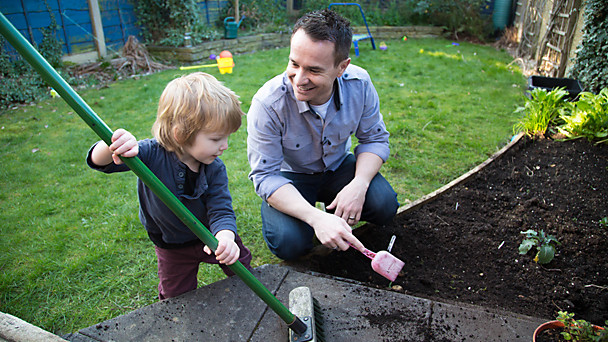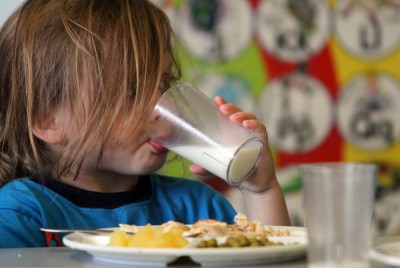
Image source: TIS.edu
The CDC estimates that approximately 7.8 percent of Americans suffer from ADHD, Attention Deficit Hyperactivity Disorder.
There are different types of ADHD. The degree that it affects a child’s or adult’s life varies greatly dependent upon severity of symptoms as well as supports available. Boys are often over-diagnosed while girls may be under-diagnosed. Chances are good that you know someone who suffers from ADHD. Living with ADHD presents lifelong challenges; it is not outgrown.
Conventional Treatment of ADHD
Mainstream medical practitioners often recommend the use of powerful drugs to manage ADHD. Many of these drugs are stimulants. If given to a person without ADHD, the medications would speed them up. People with ADHD metabolize the drugs differently. As a result, the stimulant drugs “slow them down” and aid focus. While I have seen pharmaceuticals help some people suffering with ADHD, they should only be used as a last resort. They often present serious side effects and many are addictive. Even if pharmaceuticals are used, they should only be used as a part of a holistic plan of treatment.
The Best Treatment of ADHD
The best treatment plan for a person with ADHD includes the child, family and his or her social network. A holistic approach is essential. Nutrition, supplements, activities and learning strategies all need to be addressed. An effective plan is not static. It changes as the child grows. Emphasis must be on the child’s and family’s strengths, not the child’s limitations.
Educational Options for Students with ADHD
Every child and adult with ADHD is different. An individualized plan for learning is essential. Children in public schools who have been diagnosed with ADHD often are eligible to have an IEP, Individualized Educational Plan.
The hidden secrets of making herbal medicines…right at your fingertips! [1]
As the mother of an adult with ADHD, looking back I can say with certainty if we had to do it over again, I would highly recommend alternative placement if at all possible. Keep in mind, that I am referring to my own experience; yours or your child’s experiences and needs may be quite different.
Alternative schools which utilize hands-on learning techniques provide an array of benefits. A child may do better at a school which teaches using outdoor resources. Working outside provides children with time to “burn off” excess energy and may enhance interest and aid focus of a subject.
Story continues below picture.
 Here is a simple example. Many schools create gardens. Those in cold climates may utilize greenhouses to raise foods which are eaten in the school. Say you have a first grader with ADHD; he counts bean seeds to plant, learns to care for the beans, reads stories about Jack and the Beanstalk. He learns about the science and history of bean eating. Finally, he gets to eat the beans. All of this is done in conjunction with his peers. The likelihood of success in academics is improved as you have created visual and tactical tools with meaning for the child simply by planting and growing the beans.
Here is a simple example. Many schools create gardens. Those in cold climates may utilize greenhouses to raise foods which are eaten in the school. Say you have a first grader with ADHD; he counts bean seeds to plant, learns to care for the beans, reads stories about Jack and the Beanstalk. He learns about the science and history of bean eating. Finally, he gets to eat the beans. All of this is done in conjunction with his peers. The likelihood of success in academics is improved as you have created visual and tactical tools with meaning for the child simply by planting and growing the beans.
Children with ADHD sometimes have difficulty staying on task and completing their work. It is much easier to focus and complete learning activities if the child is more invested in the lesson. The garden project gives him opportunity to physically move around rather than just wiggle in his or her seat. Engagement can be a challenge for kids with ADHD. A garden provides opportunities to enhance engagement. Many books and organizations offer resources for incorporating gardens into school curriculums. All of the students benefit — not just those with ADHD.
Homeschooling Children with ADHD
Homeschooling can be an excellent educational option for children with ADHD. Distractions can be minimized. Many homeschooling families participate in small group learning activities with other families. These encounters provide opportunities to develop social skills in environments superior to conventional educational settings. Self image is often bolstered in these groups, while children in public schools who have ADHD often suffer from poor self-images.
Eat Right for Brain Health
A healthy chemical-free, organic diet is very important for people with ADHD in order to prevent the untoward effects of dyes, preservatives and additives which so many people with ADHD are sensitive to.

Image source: Whig.com
Be sure to include foods rich in essential fatty acids in your child’s diet. They are needed for proper brain health and transmission of messages within the nervous system. Deep water oily fish such as salmon and mackerel are great sources of essential fatty acids. Only purchase or catch wild fish, as farm raised ones do not offer the same benefits. If your child is a vegetarian, add a teaspoon of flax oil to a fruit smoothie for similar benefits. Hempseed oil and milk contain essential fatty acids as well.
If your child has difficulty sleeping at night, include foods rich in tryptophan for the evening meal or as a bedtime snack. Turkey, milk whole grains and peanut butter are all great choices.
Gather or purchase fresh berries. Preserve some for winter. Berries are great sources of natural sugars. They enhance the health of the brain and entire body.
Support from Herbs and Alternative Therapies
Herbs [2] which enhance concentration soothe impulsivity and nourish the brain and which are generally safe for children include ginkgo, nettles, milk oat straw, and gotu kola. They can relieve anxiety and improve mood, too.
Your child may benefit from a learning massage or yoga. Some children respond well to martial arts programs. Aromatherapy and the use of flower essences are beneficial, too.
A Life of Success
Living with ADHD is hard work, for both parent and child. There are phases in life where it tends to even out and then times where the challenges are exacerbated. It is essential that you focus on your child as a great person; not as a person with a “condition.” Parents of kids who have ADHD often worry about whether their children will “make it “as adults. These kids do “make it” and thrive when provided with the love and tools needed by their families, friends and educational providers.
What do you think about ADHD and all-natural remedies? Tell us in the comments section below.
Sign up for Off The Grid News’ weekly email and stay informed about the issues important to you [3]
